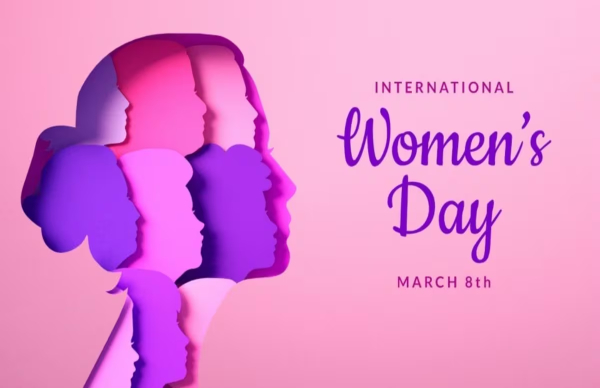“A woman’s mental strength is not defined by society’s expectations but by her ability to think, feel, and persevere beyond imposed limitations. This Women’s Day, let us move beyond stereotypes and recognize that prioritizing women's mental health is not an indulgence, but a necessity for a just and progressive world.”
Women often carry an invisible burden, one that is rarely acknowledged but deeply ingrained in their daily lives. This mental load extends beyond physical tasks—it is the constant, unseen effort of planning, organizing, and ensuring everything runs smoothly, from households to careers and relationships. The weight of remembering every detail, anticipating needs, and managing emotions silently accumulates, leading to exhaustion, frustration, and even burnout. Without proper recognition and support, this can take a toll on mental health. Setting boundaries, openly discussing responsibilities, and fostering shared accountability can help lighten this load and create a more balanced life.
Alongside these responsibilities, women’s mental health is also influenced by the hormonal changes they experience throughout their lives. The fluctuations of menstrual cycles, the challenges of pregnancy and postpartum, and the transition through menopause all impact mood, energy levels, and emotional stability. These biological shifts can trigger anxiety, depression, or other mood disorders, yet they are often misunderstood or dismissed. Many women struggle to receive proper care due to a lack of awareness about how these changes affect mental well-being. By recognizing these patterns and seeking appropriate support, women can better manage these phases with knowledge and confidence.
Many women, despite facing emotional struggles, continue to function at high levels in their personal and professional lives, masking their pain behind a facade of success. This is known as high-functioning depression—where despite excelling in daily responsibilities, they battle inner turmoil, exhaustion, and a persistent sense of emptiness. Because they appear “fine,” their distress is often overlooked, making it harder for them to seek or receive help. Recognizing that even the strongest individuals need support is crucial in breaking the silence around mental health struggles.
Another significant challenge women face in mental health care is gender bias. Many mental health conditions in women are misdiagnosed, dismissed, or minimized, with their symptoms often attributed to stress, hormones, or personality traits rather than legitimate concerns. This can result in inadequate treatment and prolonged suffering. Gender stereotypes not only impact how women’s mental health is perceived but also affect their access to quality care. Advocacy for gender-sensitive mental health treatment is essential to ensure that women receive the proper diagnosis and support they need.
Compounding these struggles is the immense pressure of societal beauty standards. From a young age, women are exposed to unrealistic expectations about their appearance, which can deeply affect self-esteem and mental health. The constant push to meet these unattainable ideals fuels self-doubt, body image issues, and in severe cases, disordered eating and anxiety. However, embracing self-acceptance and challenging these rigid beauty norms can help foster resilience and confidence. Cultivating a positive self-image is not just about appearance—it is about mental well-being and self-worth beyond societal expectations.
If you or someone you know is experiencing any of these challenges, Ummeed Deaddiction and Rehab Center offers therapy and treatment to provide the support needed. Mental health is just as important as physical health, and seeking help is a step toward a healthier, more fulfilling life.

Very well explained